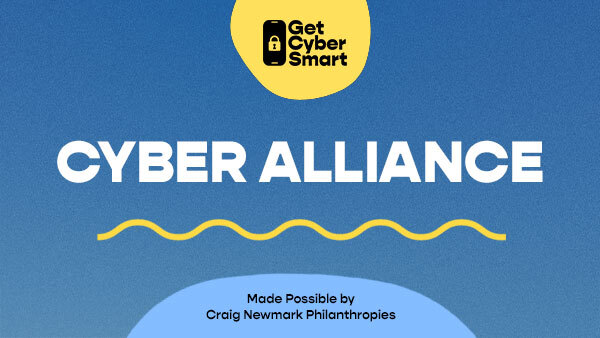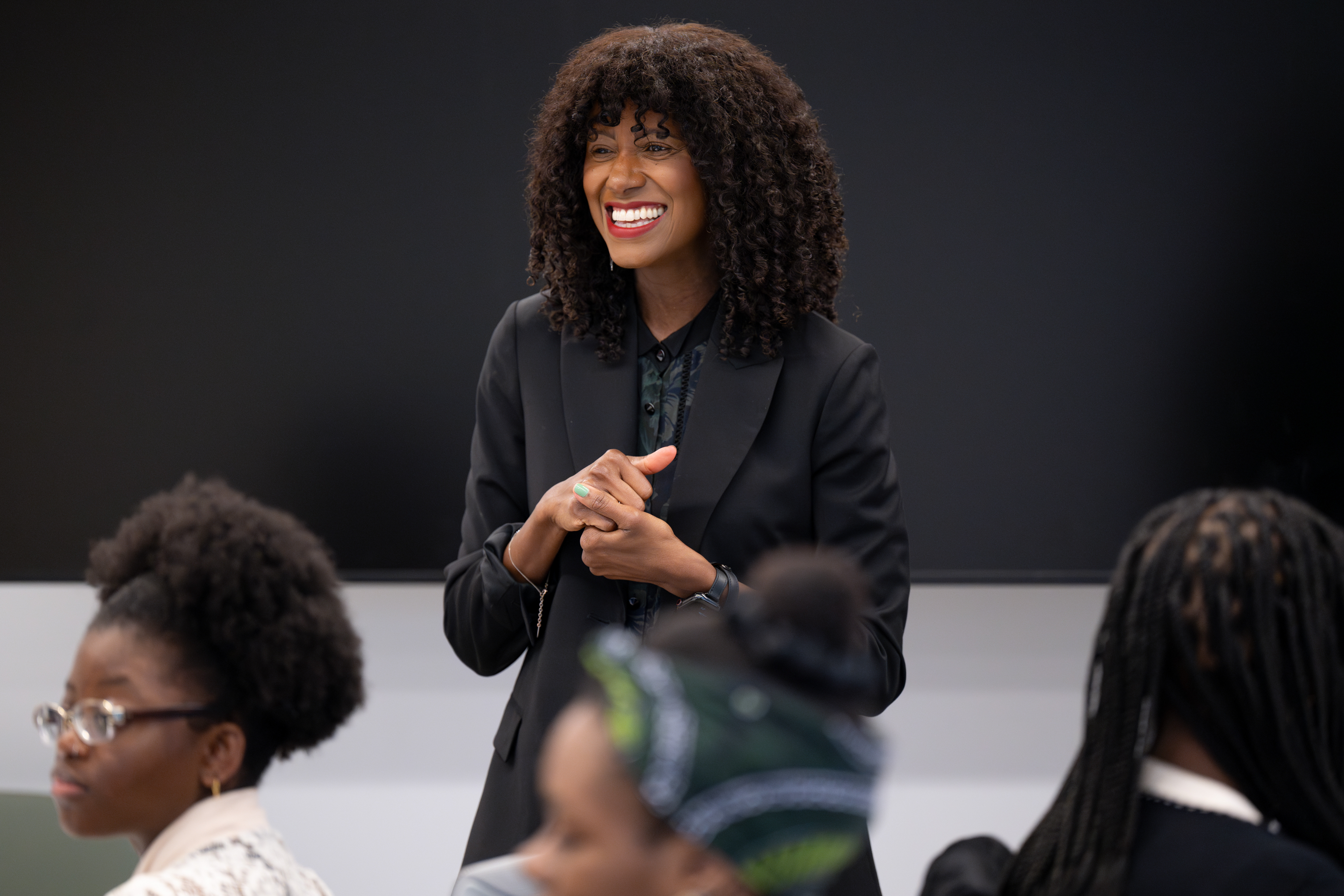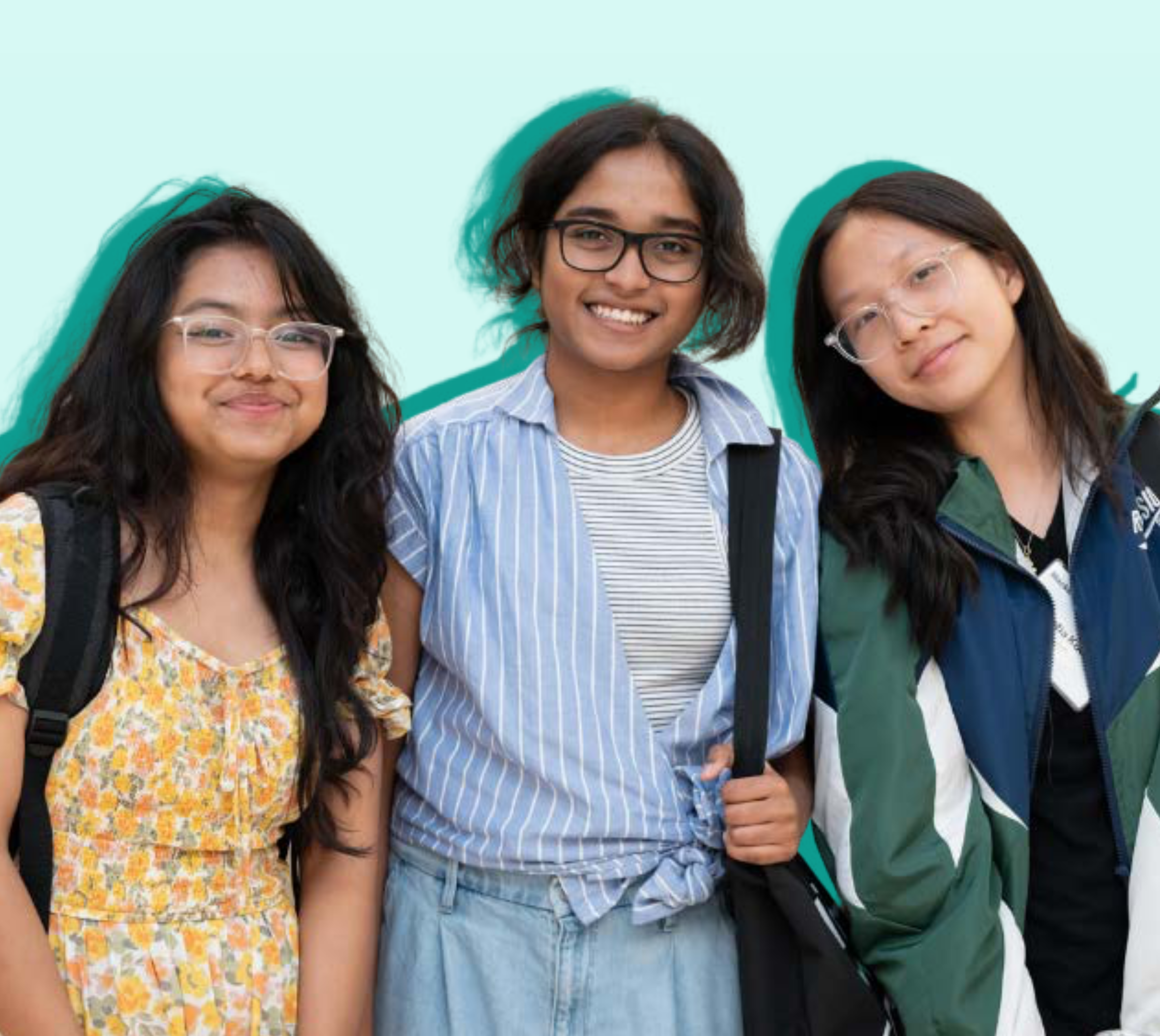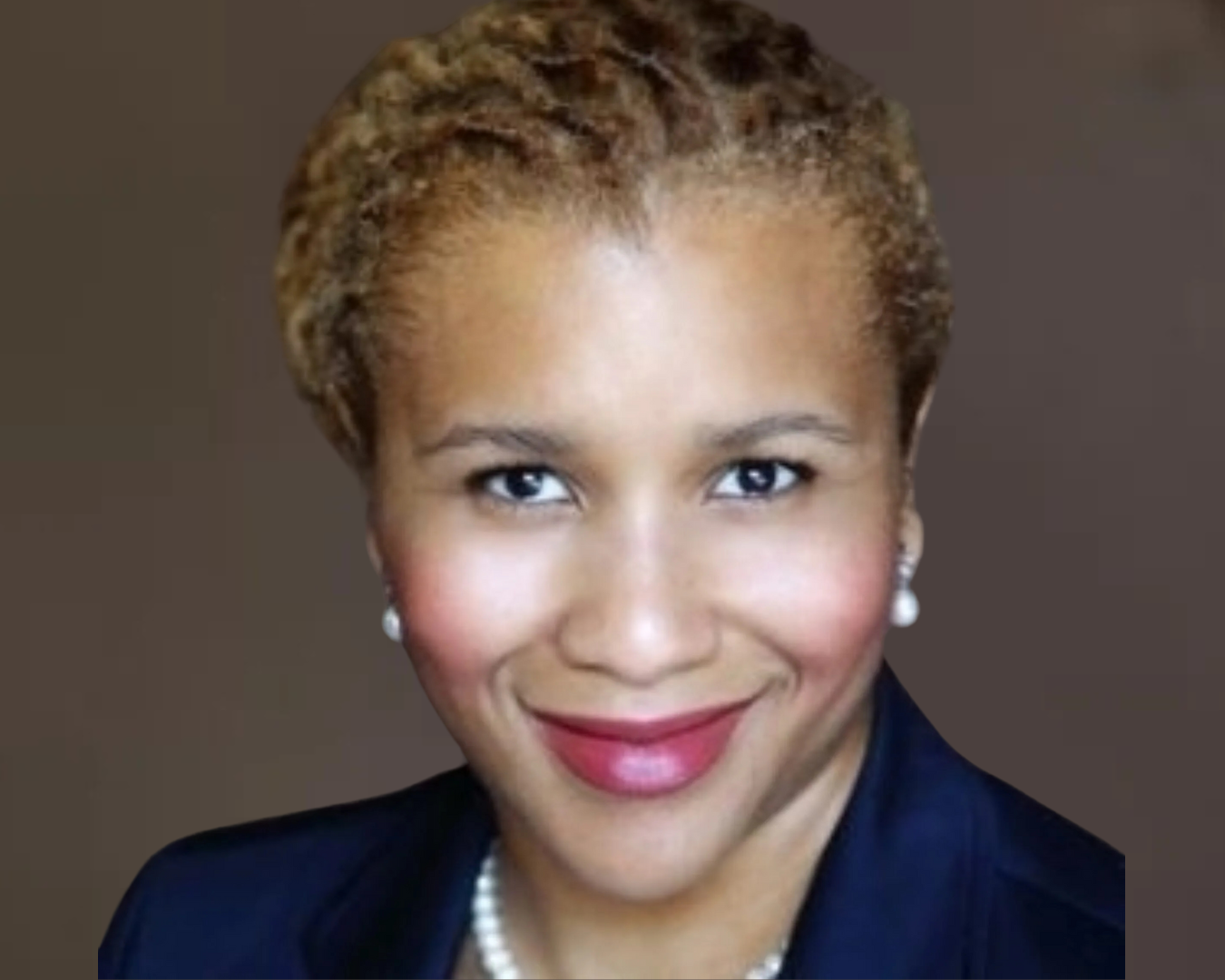Girls Who Code Leads Cyber Alliance Providing Resources for Young People
The Alliance includes 19 organizations looking to educate students about cybersecurity.

NEW YORK, NY – Today, Girls Who Code, a nonprofit working to close the gender gap in tech, announced a new Cyber Alliance, featuring 19 organizations committed to providing resources for young people to protect themselves online. With an emphasis on historically underrepresented groups, the group will aggregate a set of resources focused on developing cybersecurity awareness and knowledge in middle school and high school students. The resources will be promoted as part of the Alliance’s “Get CyberSmart” campaign, and will be released in October for Cybersecurity Awareness Month.
Participating organizations include: Black Girls Hack, Black Girls in Cyber, CodeHS, Code.org, Common Sense Media, CYBER.ORG, CyberTorial.org, Cybersecurity and Infrastructure Security Agency (CISA), Empow(H)er Cybersecurity, Geena Davis Institute, Girl Scouts of Greater NY, Girl Security, Raíces Cyber Organization, Startfield, Inc., The Accelerated Training Program (T-ATP), Women in CyberSecurity (WiCyS), Women in Security and Privacy (WISP) and Women's Society of Cyberjutsu (WSC).
"Empowering young people with the knowledge and skills to protect themselves from cybersecurity threats is not just about safety—it's about ensuring they have the confidence and capability to navigate the digital world securely,” said Dr. Tarika Barrett, CEO of Girls Who Code. “In an era where technology is deeply intertwined with our lives, understanding cybersecurity is essential for building a safer, more resilient future. We’re grateful to the Cyber Alliance members for their commitment to this cause, and look forward to our continuing partnership.”
Research from CYBER.ORG shows that most American students lack a fundamental knowledge about cybersecurity, which could leave them susceptible to major vulnerabilities and cyber threats. The gap also has wide-reaching implications for the nation’s workforce and security.
“As the nation’s cyber defense agency, it’s important that we partner with members of the Cyber Alliance to educate the next generation of leaders and empower them to practice good cyber hygiene. By protecting themselves, their families, and communities online, they will help create a more cyber safe and secure world,” added CISA Director Jen Easterly said. “I am thankful to Girls Who Code for launching the Alliance, and I look forward to collaborating with this dynamic group.”
The Alliance was made possible through generous support from Craig Newmark Philanthropies, and will produce engaging informational content including videos, tip sheets, activities and more.
“I am pleased to support Girls Who Code’s cyber safety efforts,” said Craig Newmark, founder of Craig Newmark Philanthropies. “I appreciate that this powerful Alliance is coming together to educate young people, and perhaps even inspire them to pursue a career in cybersecurity themselves.”
Currently, there are hundreds of thousands of cybersecurity jobs that go unfilled every year. As a result, our country is less prepared to adapt to increasing cyber threats on the individual and national scale. These jobs will only become more essential with the proliferation of AI.
“Learning about cybersecurity with Girl Security opened my eyes to the discrepancy between our current laws and our ability to regulate cybersecurity issues, especially with the emergence of AI,” said Arriyah, Workforce Alum for Girl Security. “I always wanted to attend law school, and this knowledge gave me the tools I needed to pursue an area of interest. Bridging the gap between lawmakers and society and technology is the best way that I can give back to the world."
About Girls Who Code
Girls Who Code is an international nonprofit organization working to close the gender gap in technology, and is leading the movement to inspire, educate, and equip students who identify as girls or nonbinary with the computing skills needed to pursue 21st century opportunities. Since launching in 2012, Girls Who Code has reached 670,000 students through our in-person and virtual programming, and 218,000 of our alumni are college or career-aged.
Girls Who Code has sparked culture change through marketing campaigns and advocacy efforts, generating 14 Billion engagements globally. In 2019, the organization was named the #1 Most Innovative Non-Profit on Fast Company’s Most Innovative Companies list, and in 2023 was named one of Fast Company’s Brands That Matter. The organization was also named one of NonProfit Times’ Best Nonprofits to Work For in 2022 and 2023.


